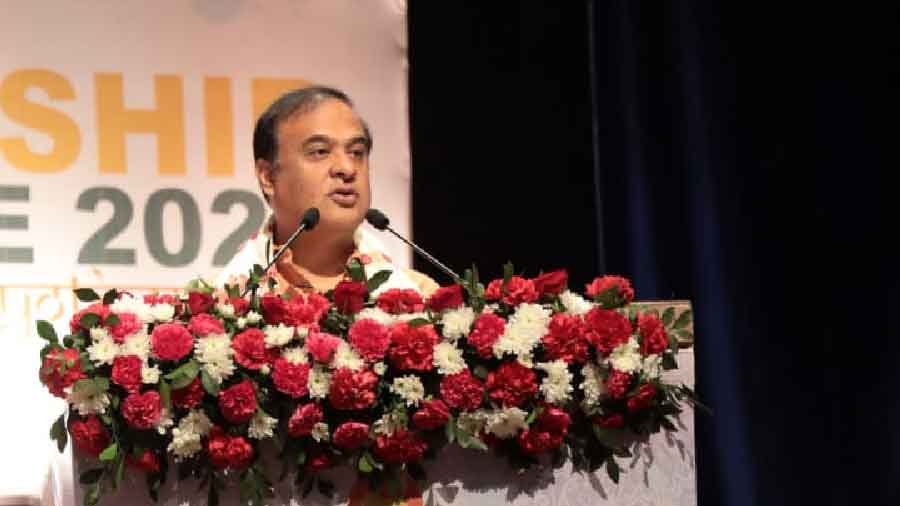Islam, a resident of Dhalpur ‘Char’ (sand bar) of Brahmaputra, claims he had provided all required documents to prove his Indian citizenship, but his name did not appear in final list
Trideep Lahkar, Guwahati: It is an unending wait of uncertainty for Safikul Islam and his two children, who did not find their names in the highly contentious National Register of Citizens (NRC), published three years ago in Assam.
The final NRC, released on August 31, 2019, left out 19,06,657 persons, leading to uncertainty over their citizenship . A total of 3,11,21,004 names were included out of 3,30,27,661 applicants.
Islam, a resident of Dhalpur ‘Char’ (sand bar) of Brahmaputra, claimed that he had provided all required documents to prove his Indian citizenship to the NRC authorities, but his name did not appear in the final list.
“I was born in 1970 in a village in Barpeta district. My father migrated to Dhalpur after our village was eroded by Brahmaputra. My family linkage was also established. Still, my name, one son and daughter’s names did not appear,” he told PTI.
However, his wife Nazma’s name appeared in the final list of the NRC.
“Though nobody in the village is questioning my citizenship as they know me very well, but I have faced uncomfortable situations at other places,” Islam said.
“You cannot do anything sir by knowing our situation. Many reports have been published in the press and many NGOs visited us. Still, everything remained the same. People just question us on our appearance and clothes outside the village. This is unfortunate,” he lamented.
For 79-year-old Rehena Khatun of Cachar district, it has been a battle of prestige and recognition.
“My husband died two years ago, proving our entire family’s citizenship issue at the Foreigners Tribunal (FT). It is still pending. Because of the legal case, our names did not appear in the NRC,” she said, weeping.
After the publication of the final list, the authorities were supposed to issue the Rejection Slip, mentioning the reasons for excluding a person’s name from the final NRC.
Before publishing the final NRC, the Centre had extended the time limit for filing of appeals in Foreigners Tribunals with the Rejection Slips by the excluded persons to 120 days from 60 days and necessary amendments were made.
However, the process got inordinately delayed and no tentative schedule for issuing the Rejection Slips was announced. The slips are yet to be issued.
A person whose name is not a part of the NRC, can approach any FT with a certified copy of the Rejection Slip received from the NRC authorities along with the grounds for appeal.
As per the law, the NRC cannot decide if someone is a foreigner or not. Only FTs can declare a person a foreigner in Assam.
Ashraful Hussain, an activist fighting for people with citizenship issues, said the inordinate delay in solving the NRC issue is helping a section with vested interests in “creating disturbances” from time to time to “destabilise the society”.
“According to our estimates, at least 81 people have committed suicide in the last 15-20 years for uncertainty of their citizenship. Many people were excluded on technical grounds and nothing has been done to correct that,” he told PTI.
Hussain, currently an MLA of the opposition AIUDF, said that unless the issue is solved immediately, politics will be played with the fate of some poor and underprivileged people.
Social Justice Forum (SJF), an NGO working on the issue, demanded the government to settle the matter for permanent peace of the state.
“The entire issue is hanging in balance. The affected people, mostly very poor, are losing every penny of their savings in fighting out the legal battle. It is not an easy thing,” SJF president Golap Mazumder said.
However, the Assam government and all the political parties have termed the present list of the NRC as faulty. They claim that genuine Indian citizens were excluded and many illegal foreigners were included.
While taking charge of the state in May last year, Chief Minister Himanta Biswa Sarma had said that his government wants reverification of 20 per cent names in the border districts, while the same should be done for 10 per cent elsewhere.
“If a very negligible error is found, then we can proceed with the existing NRC. But if huge anomalies are found in reverification, then I hope the court will take note of this and do the needful with a new perspective,” he had said.

